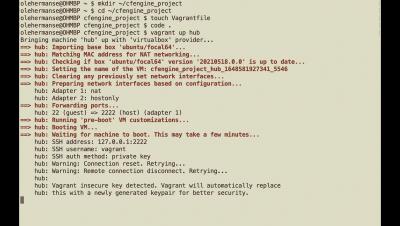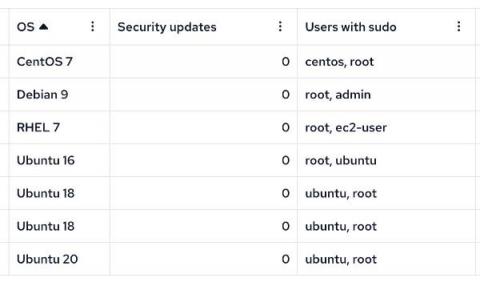Operations | Monitoring | ITSM | DevOps | Cloud
CFEngine
Change in behavior: Directory permissions and the execute bit
rxdirs has provided a convenient default when setting permissions recursively. When enabled (the default prior to version 3.20.0) a promise to grant read access on a directory is extended to also include execution since quite commonly if you want to read a directory you also want to be able to list the files in the directory. However, the convenience comes with the cost of complicating security reviews since the state requested on the surface is more strict than what is actually granted.
Getting started with CFEngine Pt. 1 - Installation
Secure your hosts with CFEngine Build modules
Last year, we launched functionality for users to add policy for reporting data, compliance reports, promise types, and other code as modules. With CFEngine Build, users can manage and update their own policy, the default policy and any additional modules separately. This makes it very easy to utilize policy or other modules written by the CFEngine team, or other community members. In this post we will take a look at using some modules to improve the security of our infrastructure.
CFEngine: The Agent Is In 10 - Event-Driven CFEngine
Writing a cfbs module for your custom policy update
I re-stumbled across this mailing list post from Bryan Burke about some policy framework upgrade issues where he also asked about hooking in and customizing the update policy. I thought this sounded like a good opportunity for an example using a cfbs module. So, let’s take a look at making a cfbs module for a custom update policy. As mentioned in the thread there are just a couple of things you need to do in order to hook in and customize the behavior of the update policy.
Introducing bodies with custom promise types
Last year we had a look at managing local groups with the custom groups promise type. As you may or may not recall, we used JSON-strings to imitate CFEngine bodies. This was due to the fact that the promise module protocol did not support bodies at that time. Today, on the other hand, we’re happy to announce that as of CFEngine 3.20, this will no longer be the case. In this blog post we’ll introduce the long awaited feature; custom bodies.
CFEngine bootstrap with Ansible
CFEngine and Ansible are two complementary infrastructure management tools. Findings from our analysis show that they can be combined and used side by side with joint forces to handle all areas in the best possible way. Part of infrastructure management is hosts deployment, either when building a brand new infrastructure or when growing one by adding new hosts.
Using cfbs with a traditionally managed policy set
With the recent release of build.cfengine.com and cfbs I have been thinking about the process of converting a traditionally manged policy set. I consider a traditionally manged policy set one where you have a repo with the root of masterfiles being the root of the repository, or even having no repository at all and managing masterfiles by editing directly in the distribution point (e.g. /var/cfengine/masterfiles).








